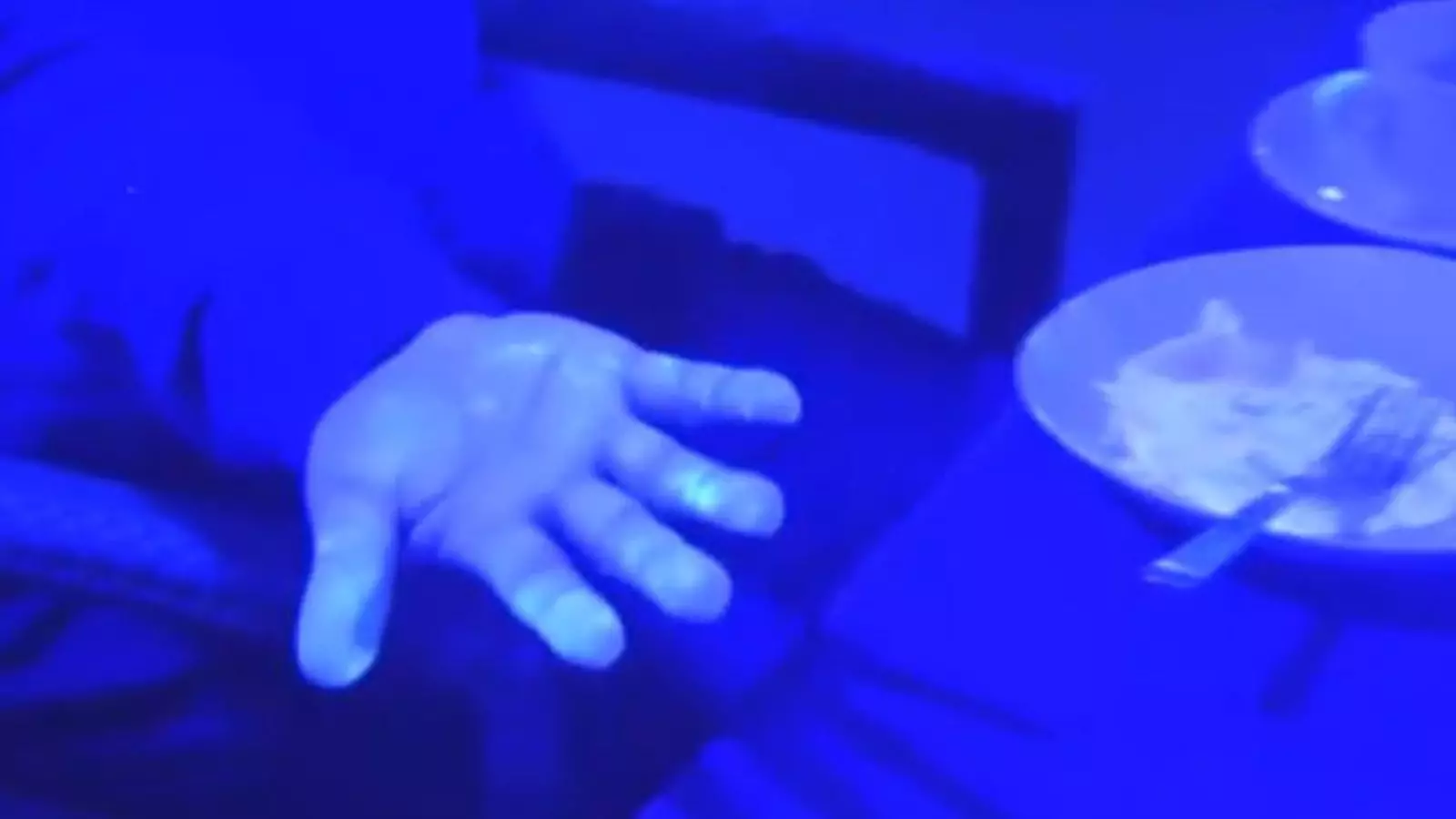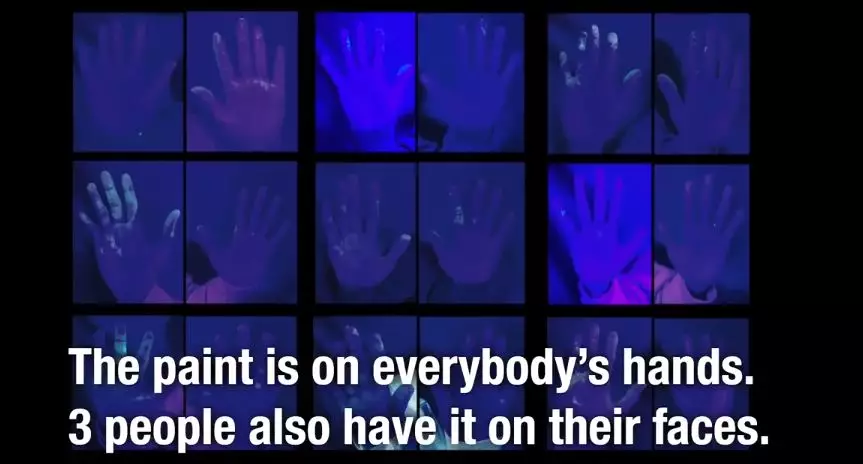
A Japanese 'black light' experiment showed just how quickly viruses such as Covid-19 can be transferred around communal spaces such as restaurants:
The research, which was carried out by NHK, used some paint to act as the 'virus' and pumped it in to just one person's hand before opening up a buffet-style room and letting everyone have some food.
Advert
This was to show how quickly diseases such as coronavirus can spread - even if there's one person infected - following the hundreds of tourists that got it on a cruise ship in Japan where the meals were supplied in a buffet setting.
The paint used was invisible to the naked eye - a representation of the deadly virus that has caused a global pandemic.
The experiment shows 10 people that go to the 'restaurant' with just one 'infected' (with the paint). The group then serve themselves some food before sitting back down to eat.


After the group had been together for some time, back lights were turned on which illuminated where the 'virus' has spread to.
Advert
The results were astonishing. The paint could be seen on t he hands of all the participants and even on the faces of some - with the majority being around the mouth area.
It was also on the food, tongues and lids of the containers, as well as the handle of the drink jug, the table cloth and the bill.
John Nicholls, professor in pathology at Hong Kong University, told CNN the video 'really highlights the need of what people have been saying about hand hygiene to stop the spread of disease'.
Nicholls did however stress the importance of hand washing as he said it would have been more effective to see the experiment done after the 'infected' individual washed their hands for five or 10 seconds.
Advert
He explained: "So the general public gets some concept of the mechanism of how much the use of hand washing can actually reduce the transmission of potentially infectious material."
Featured Image Credit: NHKTopics: News, Coronavirus